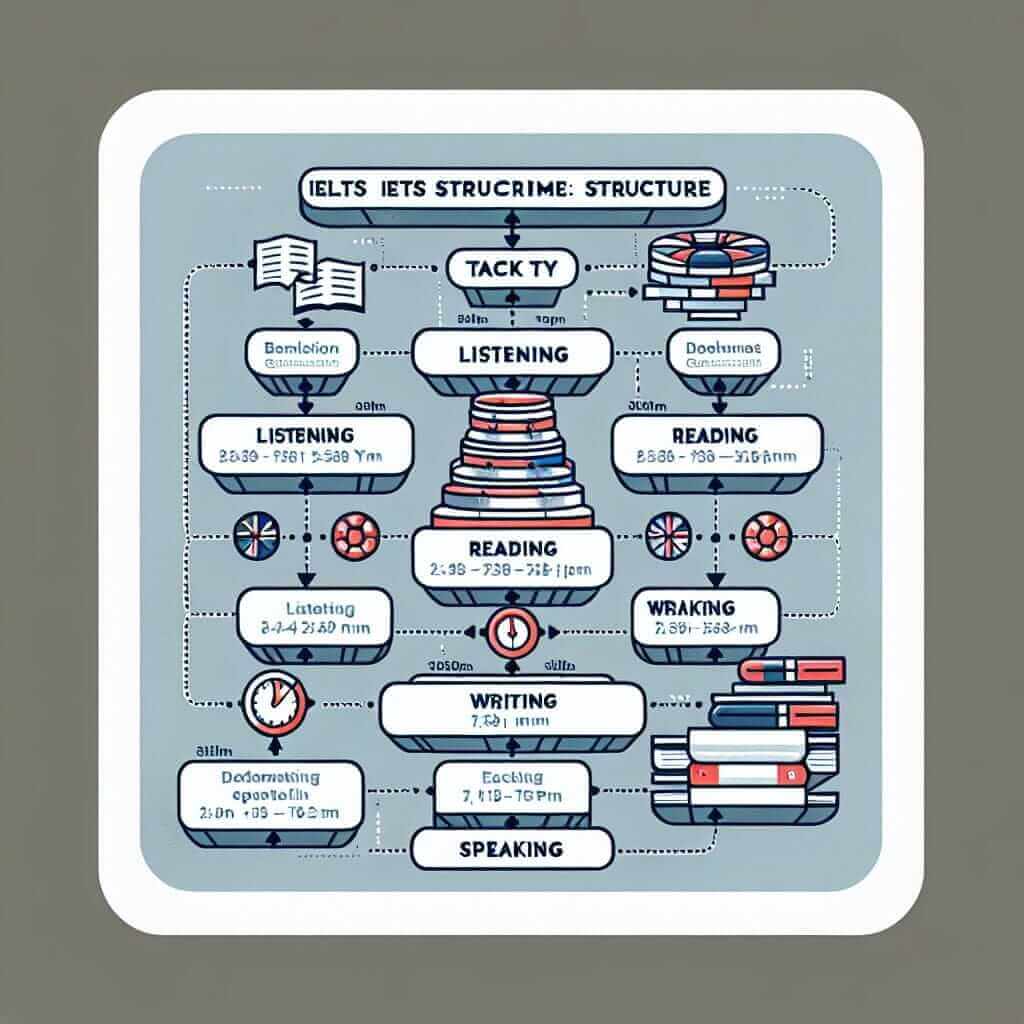Preparing for the IELTS exam can feel like navigating uncharted territory. You’re likely wondering what to expect, how the test is structured, and how to tackle each section effectively. Having taught IELTS for over 20 years, I’m here to provide you with a comprehensive guide to demystify the IELTS exam experience.
Understanding the IELTS Exam Format
The International English Language Testing System (IELTS) assesses your English proficiency across four key skills: Listening, Reading, Writing, and Speaking. Understanding the format of each section is crucial for effective preparation.
Listening
- Duration: 30 minutes (plus 10 minutes to transfer answers)
- Sections: 4 sections, each with 10 questions
- Audio Types: A range of accents and dialogues, including conversations, lectures, and monologues.
Reading
- Duration: 60 minutes
- Sections: 3 sections, each with a long passage and related questions
- Text Types: Academic texts from books, journals, magazines, and newspapers.
Writing
- Duration: 60 minutes
- Tasks: Two writing tasks:
- Task 1 (Academic): Describing a visual representation of data (graph, chart, diagram).
- Task 1 (General Training): Writing a letter.
- Task 2 (both versions): Writing an essay in response to a given opinion, argument, or problem.
Speaking
- Duration: 11-14 minutes
- Parts: Three parts:
- Part 1: Introduction and general questions.
- Part 2: Individual long turn (speaking for 1-2 minutes on a given topic).
- Part 3: Two-way discussion related to the topic in Part 2.

Essential Tips for IELTS Success
1. Familiarize Yourself with the Test Format: Practice with sample tests under timed conditions to understand the structure and pacing.
2. Develop Strong Time Management Skills: Allocate your time wisely in each section. Practice pacing yourself during practice tests.
3. Expand Your Vocabulary: Read widely and actively learn new words and phrases, paying attention to synonyms and collocations.
4. Enhance Your Grammar and Accuracy: Review English grammar rules and focus on using a variety of sentence structures accurately.
5. Practice Speaking Regularly: Find opportunities to practice speaking English with native speakers or other learners to improve fluency and pronunciation.
6. Seek Feedback and Learn from Mistakes: Have your practice tests evaluated by experienced teachers or tutors to identify areas for improvement.
Common Questions About the IELTS Exam
1. How is the IELTS scored?
The IELTS uses a band score system ranging from 0 to 9, with 9 being the highest level of proficiency. Each of the four skills is scored individually, and an overall band score is calculated.
2. How long is my IELTS score valid?
IELTS scores are typically valid for two years from the test date.
3. Can I retake the IELTS exam?
Yes, you can retake the IELTS exam as many times as needed to achieve your desired score.
Conclusion
Successfully navigating the IELTS exam requires a combination of focused preparation, strategic test-taking skills, and a thorough understanding of the exam format. By following these tips and consistently practicing your English language skills, you’ll be well on your way to achieving your target IELTS score. Remember, confidence comes with preparation, so approach the exam with a positive mindset and showcase your English language abilities with confidence.